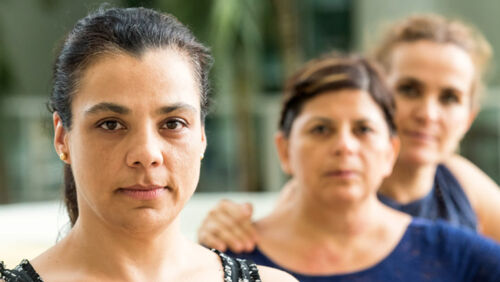How to help kids without sacrificing your retirement
By Andrew Zbik
I'm relatively new to parenthood. Today was my son's second birthday.
My wife and I watched with anticipation as he madly opened his birthday present. The look of sheer delight on his face when he saw a box of Duplo warmed our hearts.
I now get how for years on end you want to give to your children.
I can see my future now: new bike for his 4th birthday, whatever the latest fad is for his 10th birthday, a car for his 18th and quite possibly a house deposit for his 25th.
When does a parent's generosity stop? When does that generosity become detrimental to our own finances?
It's very hard to draw a line in the sand.
It is also a question I get from a lot of my retired clients.
I have the hard job of saying, "Yes, you have wealth to share with your children but it is going to detrimentally impact your retirement plans." That is a hard conversation to have with loving parents.
A good example is a couple, aged 71 and 69, with two children who are now in their early 30s and do not own a home.
The children have managed to save around $30,000 each towards a home deposit. With banks now wanting up to a 20% deposit for first-home buyers, each child looks as if they need to save another $50,000 each.
This couple are comfortable in their retirement. They have $560,000 in their superannuation fund and $150,000 in personal shares. This provides an income of around $65,000 a year. At this rate, their capital should last them until about 92 and 90.
The children are asking for $50,000 each to help with a house deposit and mum and dad have funds to help.
But giving away that $100,000 now will see their capital disappear at 89 and 87. So the opportunity cost is that the couple run out of capital three to four years earlier. If the parents were to fully provide the deposits for their children's homes, that would see their capital diminish as early as ages 87 and 85.
We should also consider that by their mid-80s they may need to enter aged care. How will it be funded if they run out of capital in their mid-80s? Their home may need to be sold.
We can see the impact on parents of providing a lump sum of cash to their children and how it does affect their super fund and personal wealth. It does have an impact on their ability to fund their own retirement and aged care costs.
There are three ways you can help your children and not have a detrimental impact on your own retirement plans:
- Rather than giving cash, you may be able to use the equity in your home to be guarantor for a loan your children take out with a bank. In many instances this may remove the need for your children to pay lenders mortgage insurance. This can save up to 1%-2% of the home purchase cost.
- Lend money rather than give it. If you do have some surplus cash earning below 3% you can make an arrangement with your children where they pay you interest at a rate above what you would earn from the bank and below what they would pay to a bank. This is nice little win-win scenario.
- Accept your children may do things differently from how you started out. What does this mean? It may actually be more efficient for them to continue renting where they live and purchase an investment property. The tax deductions and rent can be less than repayments on a principal and interest home loan. Thus they can balance living where the want to live for lifestyle while still having an exposure to property as an investment.
Assumptions for cash flow: starting ages 71 and 69, projecting life expectancy to 90; inflation 2.5%; post-retirement rate of return on assets 5% (moderately conservative risk allocation); annual retirement income of $65,000 indexed; starting superannuation balance of $560,000; tarting personal assets of $150,000; eligibility for commonwealth aged pension included in forecast; assumed homeowners.
Get stories like this in our newsletters.


